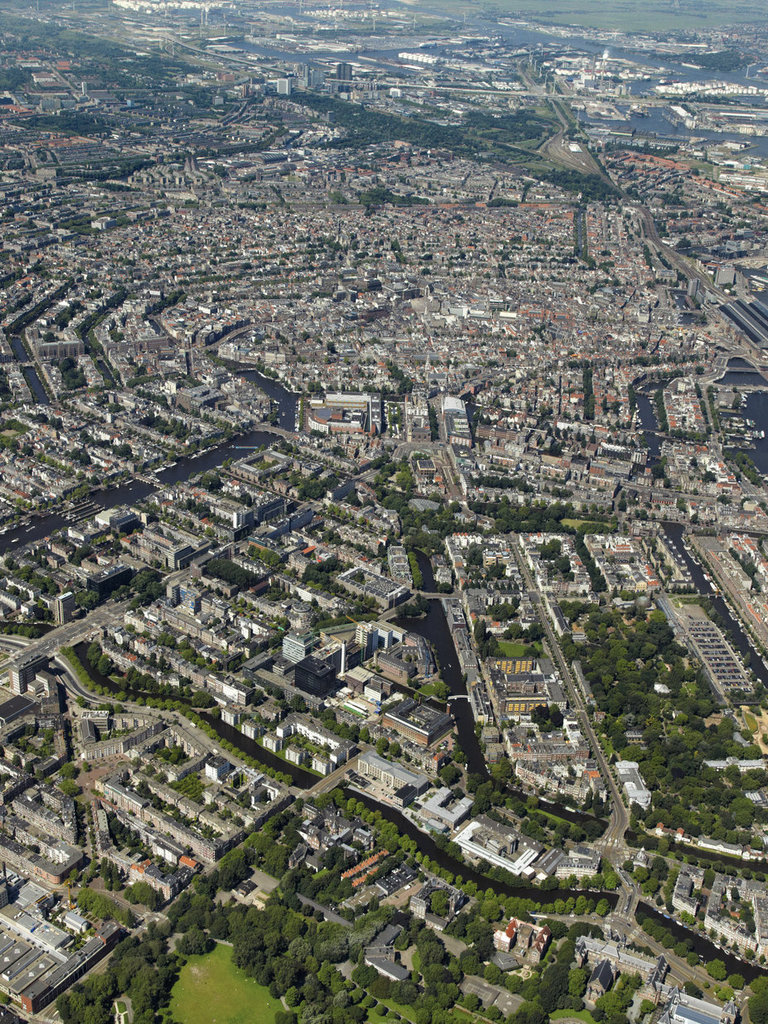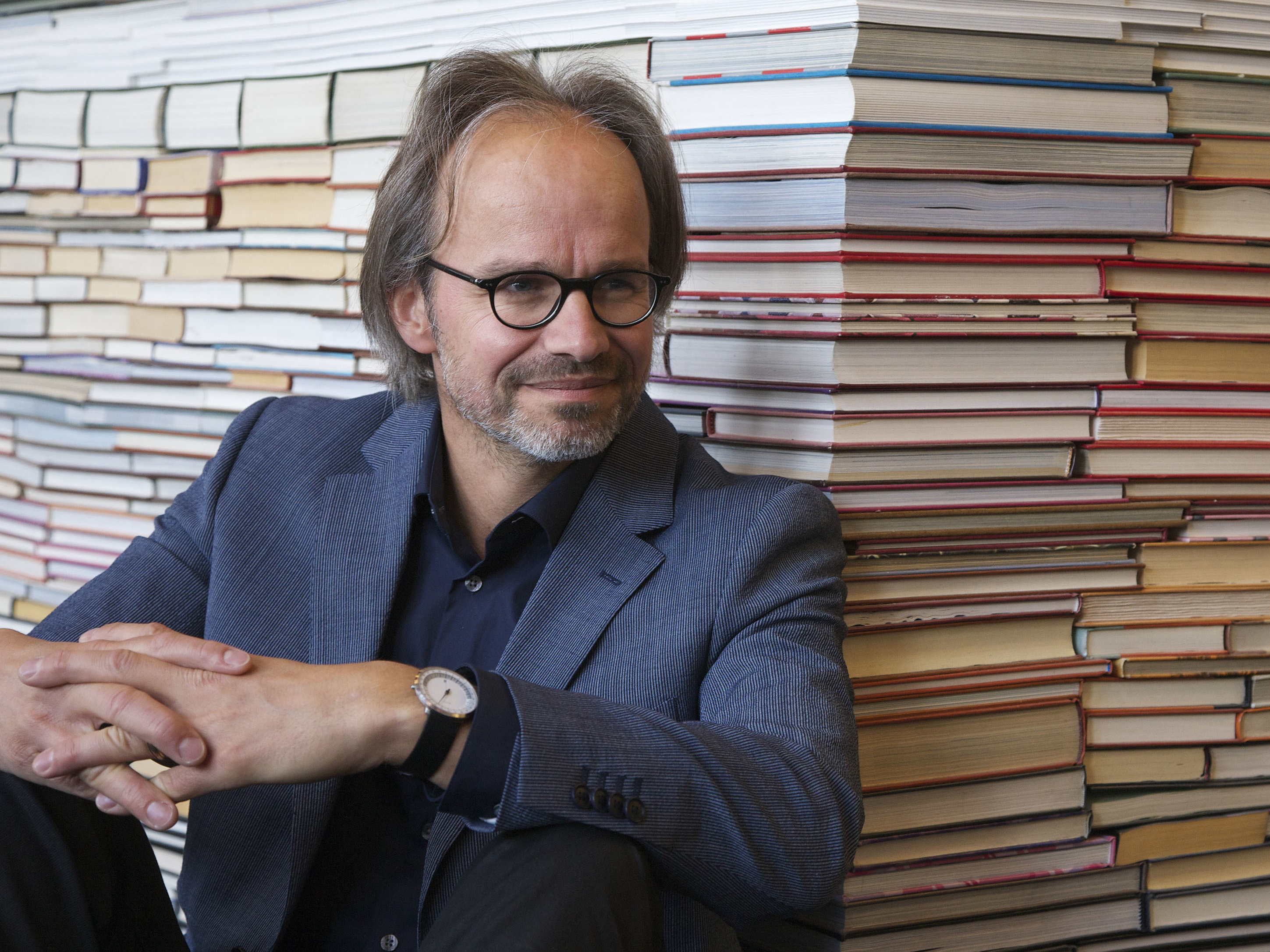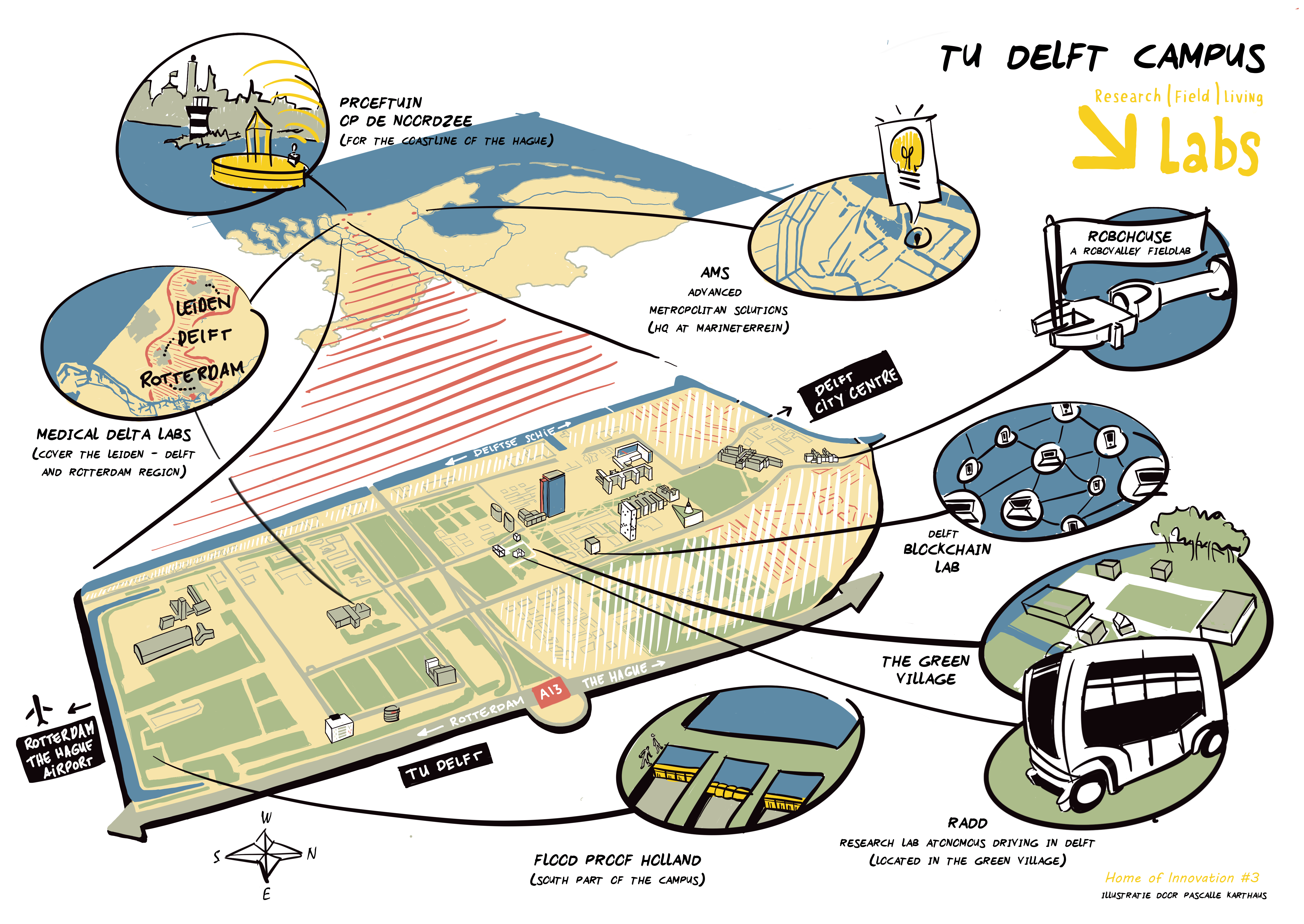
AMS Institute
Text: Jurjen Slump
AMS Institute is an internationally leading institute where engineers, designers and researchers jointly develop integrated metropolitan solutions. What makes AMS Institute unique is that its research is validated and implemented in practice using the city of Amsterdam as a living lab.
The world is urbanising at a tremendous rate. Cities increasingly face challenges of sustainability and quality of life, challenges that put our resources, food security, mobility and logistics, water and waste management, health and wellbeing at risk.
Cities need metropolitan solutions, made possible by revolutions in new technologies, research and design methods. But no stakeholder can do this alone: finding metropolitan solutions requires cooperation between knowledge institutes, companies, cities and citizens.
For this reason, AMS Institute was founded in 2014 by Delft University of Technology, Wageningen University & Research and Massachusetts Institute of Technology in close collaboration with a group of private, public and societal partners, with of course the city of Amsterdam as key partner.
The institute wants to develop a deep understanding of the city (‘sense the city’) to design solutions for its challenges, and integrate these into the city of Amsterdam, during and after which consequences are being measured and investigated again to enable iterations of these solutions. Its research evolves around applied technology in themes related to city metabolism, such as water, energy, waste, food, data and mobility, and the integration of these themes for a prosperous society.
Using the city as a living lab is unique as it provides a valuable context for experiments that helps develop and test advanced solutions for challenges in urbanised metropolitan areas around the globe. The living lab approach is important, as it forms an important step to achieve more impact faster, and above all better society-wide implementation.
by Arjan van Timmeren, Scientific Director AMS
A view on AMS Institute
by Arjan van Timmeren, Scientific Director AMS

Innovation for the city
“The AMS Institute is a public-private partnership with a turnover target of 250 million Euros over 10 years. In June this year, we will complete four years of operations. By then, we will have built up a research portfolio of 81 projects, as well as running a Master’s programme on Metropolitan Analysis Design & Engineering (MADE) and teaching about 30,000 students worldwide via MOOCs. The research projects are centred on three themes: Circular City (sustainable solutions in the fields of energy, water, materials & buildings and nutrient extraction), Connected City (mobility and data) and Vital City (resilience, climate adaptation and urban food systems). Most projects are a cross-over between traditional Delft engineering and contemporary innovative Delft IT engineering, i.e. a lot of robotics, algorithms and smart concepts, but always linked to real problems in the living environment and focused on solutions.”
Urban metabolism
“We focus a lot of attention on what I call ‘urban metabolism’: everything that flows into and out of the city. We’re looking for solutions for the city as a whole, because small-scale solutions will not be enough to address imobility and climate issues. We test the possible solutions within a defined area, after which we make the leap to the city and society as a whole. Roboat, a research project set up in collaboration with MIT Boston for the development of autonomous vessels, is being tested on the Amsterdam canals. Various use and business cases are developed as part of the research, for example, for using these autonomous vessels for sensing, as self-driving taxi boats or for food distribution and waste collection. At present in Amsterdam only, but later this will be extended to cities and deltas worldwide.”
Living labs
“Working with living labs is an essential part of our working method: it is this particular institutional innovation that gives the AMS Institute an edge worldwide. Our experimental living labs revolve around our end users because we want to get them involved right from the start. After all, better than anyone else they know where exactly current solutions fall short. Their continuous feedback ensures that the innovations tested here will work better in cities characterised by a dual complexity of, on the one hand, urban (technical) systems and, on the other hand, of people and the actual day-to-day life in these urban environments, which do not always follow the rules of logic.”
Faster-to-market “TU Delft benefits greatly from the collaboration within the AMS Institute.Most importantly, this collaboration ensures that scientific research reaches the market much faster than it normally would. We combine speed with fundamental expertise, which allows us to carry out implementations and tests very quickly. Once again, the living labs are crucial for this. For the AMS Institute, they form an important link between fundamental research and scale-ups, on the one hand, and a faster and broader acceptance in society, on the other. Which is absolutely essential in view of the major challenges we will be facing.”
More about Prof.dr.ir. A. van Timmeren
